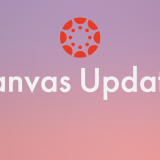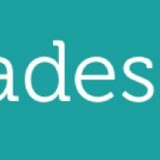
Designing instruction for ALL learners Registration open now for IETL's JanCon 2018
December 3, 2017
I’d like to think that all higher education faculty, at Chapman University and elsewhere, are aware of several ways that we accommodate students who have documented disabilities and need assistance in order to optimally perform in our classes. Large print materials, screen readers, voice amplification, use of a laptop or a note taker, preferential seating, assistance from/presence of a service animal in class, extended time on tests, and other similar accommodations are efforts that we, as faculty, typically incorporate after our lessons are designed.
But why do we think of accommodations only after we have designed our lessons? And, should we think not only of the students with documented disabilities who have a legal right to accommodations, but also all students who might benefit from increased access to our instructional materials and the ways in which we assess their learning?
This shift in focus from accommodations to accessibility is at the center of what is known as Universal Design for Learning, or UDL. Behind it is the premise that if we design our instruction and assessment with deliberate focus on increasing access for all learners, we will holistically address the needs of students with disabilities and also address the cognitive diversity of all students, as well as honor the different life styles and stages in which our students find themselves.
Imagine, if you will, a relatively simple modification – providing a voice-over narration to a slide deck you post on Blackboard and want students to review before class. By adding the recorded narration, you have addressed the needs of a student who may have a visual deficit, a student who learns more effectively aurally than visually, the commuting student who now can listen to the narration in his car while on the long commute to/from campus, and the parent who can listen with earphones while putting her child to bed. The idea of increasing methods of representation, engagement, and expression are at the heart of UDL.
We encourage all full-time and part-time faculty to join IETL and register for our 2018 January Conference on Teaching, also known as “JanCon”, on Friday, January 26 from 8:30 a.m. to noon on the Orange Campus to learn more about UDL and how we can implement it in our classes. Joining us will be nationally-recognized speaker and author Dr. Tom Tobin, who will be facilitating a three-part workshop, “Reach Everyone, Teach Everyone with Universal Design for Learning”. Faculty will learn practical and immediate strategies to apply to instruction. Advanced registration is required; space is limited to the first 100 participants and registration will close no later than January 12 (earlier if we reach capacity). Like all IETL events, JanCon is free to attend for all current Chapman faculty members. Please contact me at rgmiller@chapman.edu if you have any questions or need further assistance.

